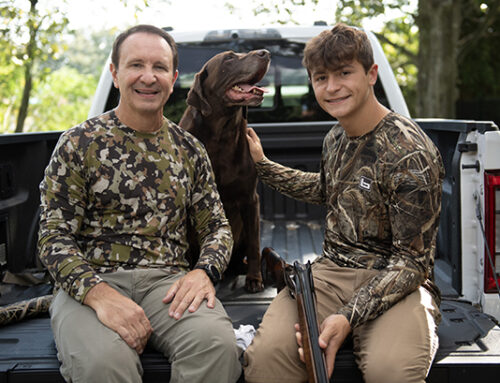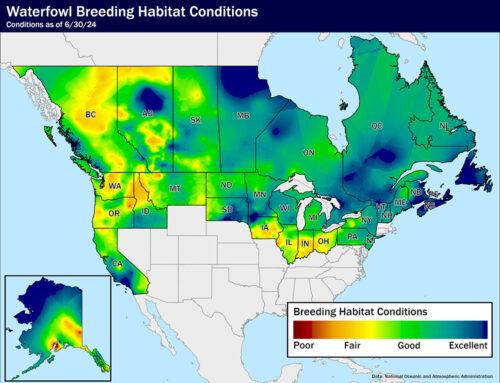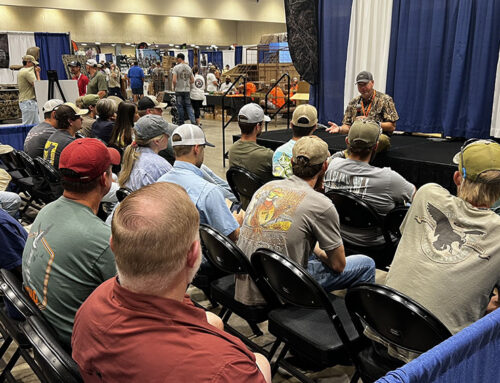Avian Influenza Outbreak Worsens

Hunters cautioned to avoid contact with sick birds
A strain of highly pathogenic avian influenza continues to exact a deadly toll on waterfowl and other birds throughout the United States.
According to the U.S. Department of Agriculture Animal and Plant Health Inspection Service, HPAI has been confirmed in 4,238 wild birds in the United States. Detections of sick birds have increased dramatically in recent weeks as the waterfowl have concentrated in refuges and on roosts as they migrate to wintering areas. USDA testing of hunter harvested ducks and geese has also boosted the numbers of birds confirmed to be carrying bird flu.

The current viral outbreak was first detected in North America in December 2021. The outbreak is comprised mostly of H5N1 avian influenza, a particularly rough strain that kills many birds that catch it. In the past year, HPAI has been detected in wild birds in 47 states and every Canadian province and territory. Commercial poultry farms in the United States have been hit hard by HPAI, with more than 52.6 million domestic turkeys, chickens and other backyard birds wiped out as a result.
Local, state and federal agencies are monitoring the outbreak, including collecting swabs from hunter-harvested waterfowl and reported dead birds. Refuge managers are also collecting the carcasses of dead birds for testing and disposal.
Birds suffering from HPAI often cannot walk or fly, and might swim in circles. They often exhibit a twisted neck and lack of coordination. If you encounter a bird acting erratically or find a suspicious dead bird, do not handle it. Instead, report it to local game management personnel.
The Center for Disease Control defines the risk of HPAI to human health as low. However, the CDC does recommend that hunters avoid contact with sick birds, wash your hands with soap and water after handling game, wear disposable gloves for field dressing and cook meat to an internal temperature of at least 165 degrees.
Only one human case of avian flu has been reported, and that person (a poultry farm worker in Colorado) made a full recovery. HPAI has sickened wild mammals, including red foxes, skunks, raccoons, bobcats, coyotes and harbor seals.
Some waterfowl hunters are reportedly keeping their retrievers out of the marshes and fields this season as a result of HPAI, although no reports of sick hunting dogs have been registered with the CDC or USDA.
For more information on HPAI, visit https://www.aphis.usda.gov/aphis/ourfocus/animalhealth/animal-disease-information/avian/avian-influenza/2022-hpai and https://www.cdc.gov/flu/avianflu/avian-flu-summary.htm. — Paul Wait






Leave A Comment